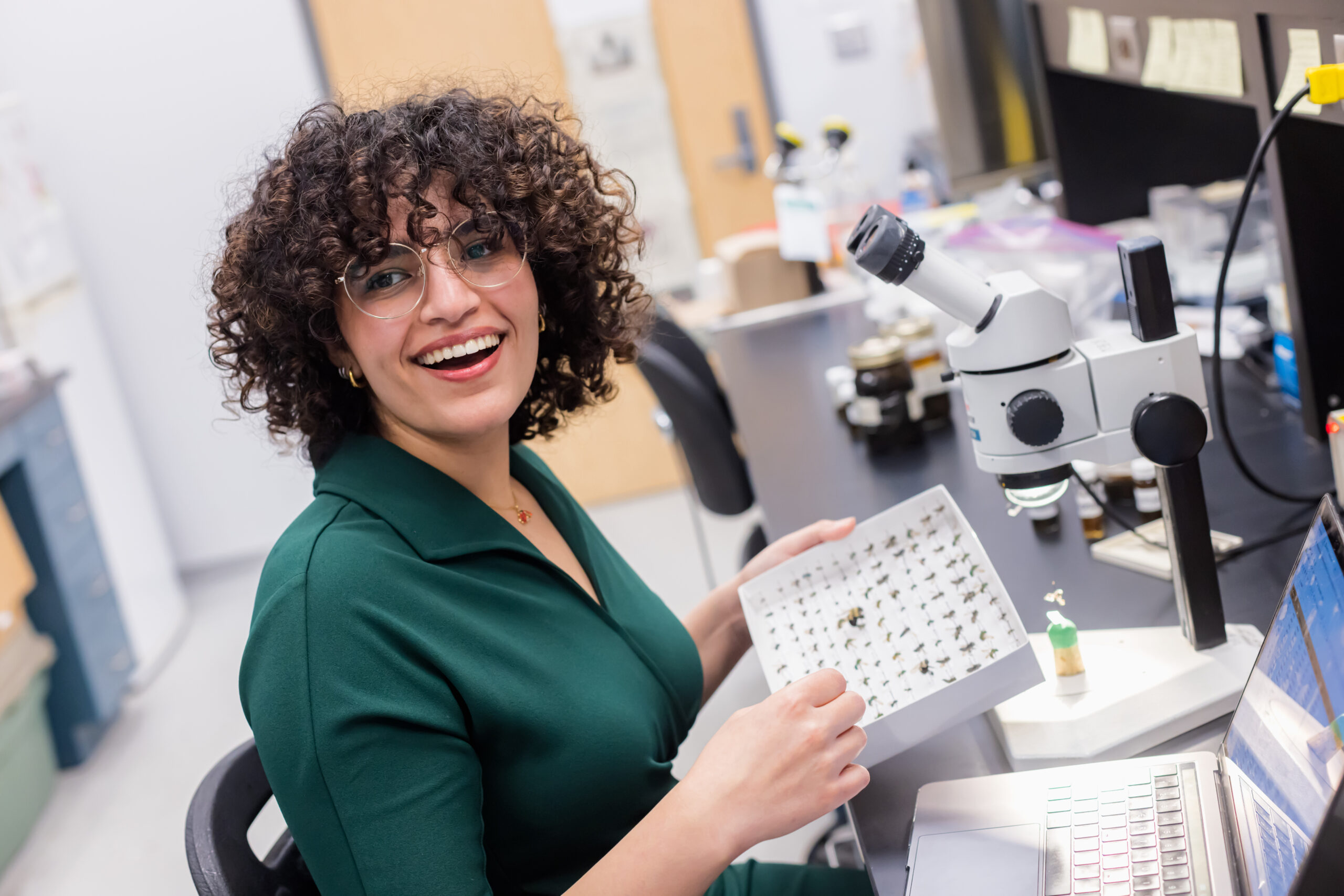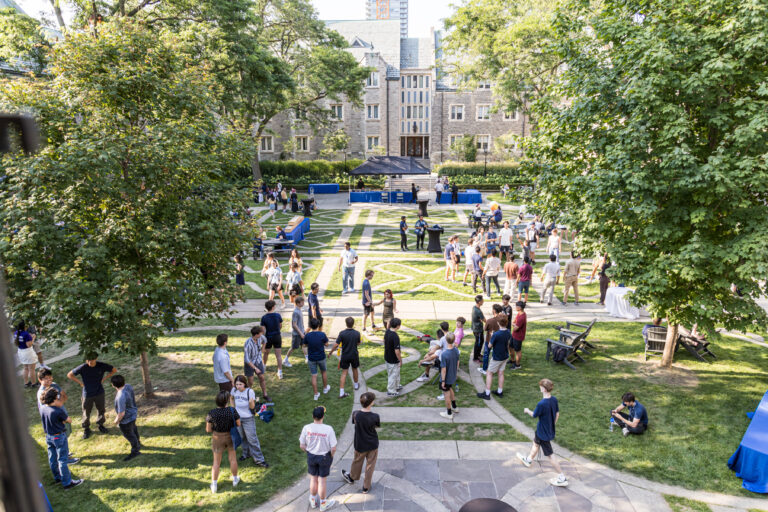Hadil Elsayed is a dedicated entomologist and PhD candidate in the Department of Biology at York University, Canada. Her research focuses on the effects of climate change on insect populations, particularly within protected areas like the Long Point Biosphere Reserve in Ontario. This reserve encompasses diverse habitats, including woodlands, marshes, and sand dunes, and is home to numerous plant and animal species.

To collect insect specimens, Elsayed employs malaise traps—tent-like structures designed to capture flying insects. Her fieldwork often involves navigating challenging terrains, such as tick-infested areas and swamps, highlighting her commitment to understanding and mitigating the decline in insect populations.
Elsayed’s preliminary findings indicate a significant decline in insect biomass, even within protected areas, suggesting that climate change is a contributing factor. She has presented her research at conferences, including the Entomological Society of America, where she received first place in the Student Competition for the President’s Prize.
In addition to her PhD studies, Elsayed holds a Bachelor of Science in Environmental Science from Qatar University and is pursuing a Master of Science in Environmental Science at the same institution.

Her work is supervised by Associate Professor Sheila Colla, a leading conservation scientist in the Faculty of Environmental & Urban Change at York University. Elsayed’s research is supported by York University, the Natural Sciences & Engineering Research Council of Canada, and the Entomological Society of Canada.
For a visual overview of her research, you can watch her presentation titled “Assessing the Impacts of Urban Beehives on Wild Bees Using Individual, Population-level, and Community Level Metrics.”
When photographing Hadil Elsayed for the case study, the experience was both inspiring and rewarding. She has an infectious passion for her work, and this energy came through beautifully on camera. Despite being immersed in such rigorous and often challenging field research, Hadil carries a natural calm and confidence that added a unique quality to the images.
Setting up the shots was a fantastic opportunity to blend the natural elements of her research environment with her vibrant personality. We opted for locations that showcased the raw beauty of her workspaces, including dense woodlands and the occasional open marsh, which made for a striking contrast with her focused expression and professional demeanor. Lighting her in these settings captured her dedication and brought to life the immersive nature of her research.
Her ability to move between technical explanations of her work and moments of lighthearted humor made the shoot feel less like a task and more like a creative collaboration. This balance of dedication and warmth made for compelling, memorable images and a truly enjoyable experience.






